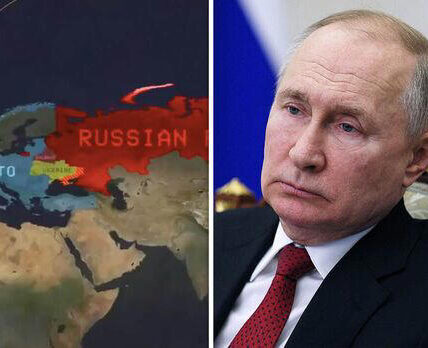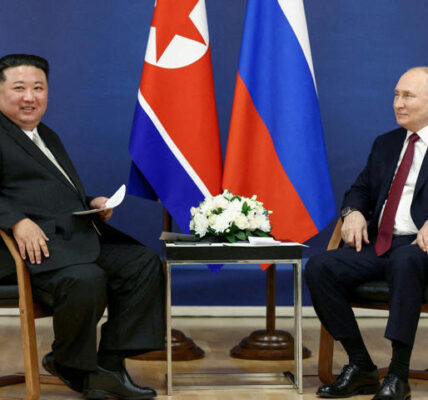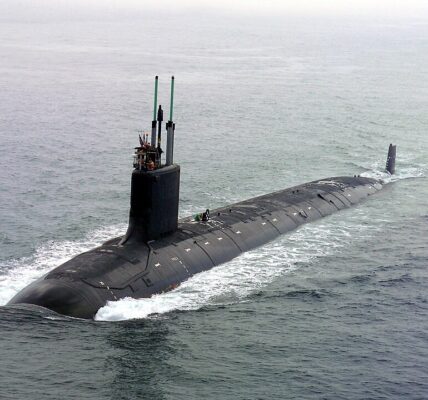- Homepage
- world affairs
- “Diplomatic Relations: 5 Shocking Missteps That Threaten Peace”
“Diplomatic Relations: 5 Shocking Missteps That Threaten Peace”
Table of Contents
ToggleDiplomatic Relations: Papua New Guinea PM’s Response to Biden’s Remark
In a recent turn of events, Papua New Guinea’s Prime Minister has expressed his discontent over a comment made by US President Joe Biden regarding his uncle’s wartime experience in Papua New Guinea during World War Two. The Prime Minister’s response sheds light on the delicate nature of diplomatic relations and historical sensitivities between nations.

© Reuters
Prime Minister’s Reaction
Prime Minister James Marape voiced his concern after President Biden implied that his uncle may have been eaten by cannibals following a plane crash in Papua New Guinea in the 1940s. Marape stated that while Biden’s remarks may have been unintentional, they were perceived as insulting to the people of Papua New Guinea. He emphasized that Papua New Guinea should not be labeled in such a derogatory manner and called for respect towards his nation.
Call for Recognition and Action
Marape urged the United States to locate and honor its war dead in Papua New Guinea, including those who lost their lives during World War Two, such as Ambrose Finnegan, Biden’s uncle. He highlighted the scattered remains of the war, including human remains, plane wrecks, and bombs, which continue to pose risks to the people of Papua New Guinea. Marape’s call for action underscores the need for acknowledgment of historical sacrifices and the responsibility to address the aftermath of conflict.
Historical Context and Clarification
It’s essential to understand the historical context surrounding Biden’s comments. Ambrose Finnegan’s death was a result of a plane crash in the Pacific Ocean off the northern coast of New Guinea in May 1944 due to engine failure, according to military records. There is no evidence to suggest that cannibals were involved in the inability to recover his remains. Marape’s statement aims to clarify misconceptions and ensure accurate representation of historical events.
Regional Diplomacy and Partnerships
The rift between Papua New Guinea and the United States comes at a time when regional partnerships are crucial. Australian Prime Minister Anthony Albanese’s visit to Papua New Guinea underscores the significance of diplomatic relations in the Asia-Pacific region. Albanese reaffirmed Australia’s commitment to supporting Papua New Guinea, highlighting the strength of their defense and security ties.
Building Trust and Understanding
Efforts to address the fallout from World War Two in Papua New Guinea require collaboration and understanding between nations. Marape’s call for the US to acknowledge its wartime legacy in the region presents an opportunity to strengthen diplomatic ties and foster reconciliation. By recognizing the sacrifices of past generations, nations can build trust and work towards a shared future.
The Importance of Historical Memory
The legacy of World War Two continues to shape the geopolitical landscape of the Asia-Pacific region. Acknowledging the historical memory of conflicts is essential for healing and reconciliation. Marape’s response to Biden’s remark highlights the importance of preserving historical truths and respecting the dignity of affected communities.
International Responsibility and Accountability
As global citizens, nations bear a collective responsibility to address the consequences of past conflicts. Marape’s plea for the US to locate war remains in Papua New Guinea reflects a broader call for international accountability. By acknowledging the human cost of war and taking concrete steps to address its aftermath, nations can uphold their commitment to peace and justice.
Looking Ahead: Opportunities for Cooperation
Despite the diplomatic tensions arising from Biden’s comment, there are opportunities for cooperation and dialogue between Papua New Guinea and the United States. By engaging in constructive discussions and mutual respect, nations can overcome misunderstandings and build stronger relations. Marape’s statement serves as a reminder of the power of diplomacy in resolving disputes and advancing common goals.
Conclusion
The response of Papua New Guinea’s Prime Minister to President Biden’s remark underscores the complexities of diplomatic relations and historical sensitivities between nations. Marape’s call for recognition and action reflects the ongoing need to address the legacy of World War Two in the Asia-Pacific region. By fostering understanding and cooperation, nations can pave the way for a more peaceful and prosperous future.



